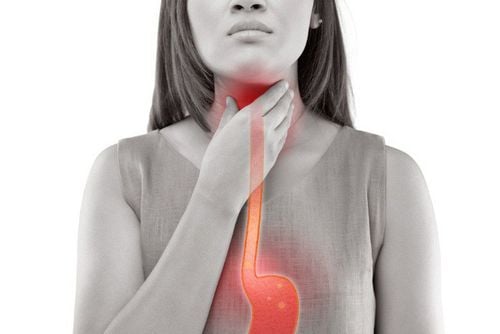Watermelon is a delicious and nutritious food. However, it's unfortunate if you have a watermelon allergy. This article provides necessary information for you in case of watermelon allergy.
1. Important information about watermelon allergy
Although rare, watermelon allergies can occur. Watermelon is considered by many to be one of summer's best treats. A fruit commonly found at picnics and in cooking, it's often used to flavor fruit drinks, yogurt, and candy.
The symptoms of watermelon allergy are similar to those of other food allergies. It's estimated that 4 to 6 percent of children and 4 percent of adults have food allergies.
The symptoms of watermelon allergy are similar to those of other food allergies. It's estimated that 4 to 6 percent of children and 4 percent of adults have food allergies.
2. Watermelon allergy symptoms
The symptoms of watermelon allergy are typically similar to other food allergies. These include:
• Hives
• Itching or tingling of lips, tongue, or throat
• Dry cough
• Stomach pain or cramps
• Vomiting
• Diarrhea
Most people with watermelon allergies will experience symptoms within minutes of consuming the fruit. In some cases, noticeable symptoms may appear after many hours.
Mild allergic reactions can usually be treated with over-the-counter antihistamines, such as diphenhydramine (Benadryl).
If this is your first time experiencing allergic symptoms after eating watermelon, consult a doctor. They can confirm your allergy through testing. They will also explain how to handle future symptoms.
Severe watermelon allergies can lead to anaphylaxis. Anaphylaxis is a serious and potentially life-threatening allergic reaction.
Symptoms of anaphylaxis include:
• Shortness of breath
• Wheezing
• Difficulty breathing
• Throat swelling
• Tongue swelling
• Difficulty swallowing
• Facial swelling
• Dizziness
• Stomach pain, nausea, or vomiting
• Low blood pressure (shock)
Although anaphylaxis is uncommon with watermelon allergies, it's not impossible. You should seek immediate medical attention if you start experiencing any symptoms of anaphylaxis.
If you have an epinephrine auto-injector (EpiPen), administer it while waiting for help. If you cannot self-administer, signal for help if possible.

3. What to do if you're allergic to watermelon
If you're experiencing symptoms of anaphylaxis, such as difficulty breathing or swallowing, seek emergency medical care.
These symptoms typically occur within seconds or minutes after exposure to the allergen. If untreated, anaphylaxis can be life-threatening.
If you're with someone who is experiencing anaphylaxis, you should:
• Call your local emergency services immediately.
• Check if they have an epinephrine auto-injector (EpiPen). Help them use it if necessary. When in doubt, it's always safer to inject epinephrine than not to in a potentially life-saving situation.
• Stay calm and do what you can to help them stay calm.
• Help them out of any restrictive clothing, such as a tight jacket. This will help them breathe more easily.
• Help them lie flat on their back.
• Raise their feet about 12 inches and cover them with a coat or blanket.
• If they begin to vomit, help them lie on their side.
• Be careful not to raise their head, especially if they're having trouble breathing.
• Be prepared to perform CPR if necessary.
• Avoid giving them anything to eat or drink, or any other medications.
If this is your first allergic reaction to watermelon and you don't already have an epinephrine auto-injector (EpiPen), your doctor will prescribe one. You should carry it with you at all times in case of emergency. If possible, try to ensure you always have two EpiPens. After an initial anaphylactic event, up to 20% of individuals may experience a delayed reaction.

4. Foods to Avoid
If you think you're allergic to watermelon, consult a doctor. They can confirm whether you're experiencing a watermelon allergy or something else.
If your doctor confirms that you have a watermelon allergy, it's important to eliminate all traces of the allergen from your diet. This is the only way to prevent allergic reactions.
People with watermelon allergies should also avoid contact with any other melons in the cucurbitaceae family. This includes:
• Cantaloupe
• Honeydew
• Cucumber
You should also avoid:
• Bananas
• Squash
• Celery
• Oranges
• Papaya
• Peaches
• Avocados
• Kiwi
• Tomatoes
These foods can trigger similar allergic reactions. Ragweed pollen, common during summer, can also be an issue.
If you're eating out, confirm that your meal doesn't contain any potential or confirmed allergens. And if you're not sure whether watermelon is in a drink or food you're served, ask. You should read food labels carefully before consuming.
Consult with your doctor about how to handle accidental exposure to allergens. Antihistamines, such as diphenhydramine (Benadryl), may be sufficient to limit your symptoms, or an epinephrine auto-injector (EpiPen) might be necessary.
To arrange an appointment, please call HOTLINE or make your reservation directly HERE. You may also download the MyVinmec app to schedule appointments faster and manage your reservations more conveniently.
Reference source: healthline.com













